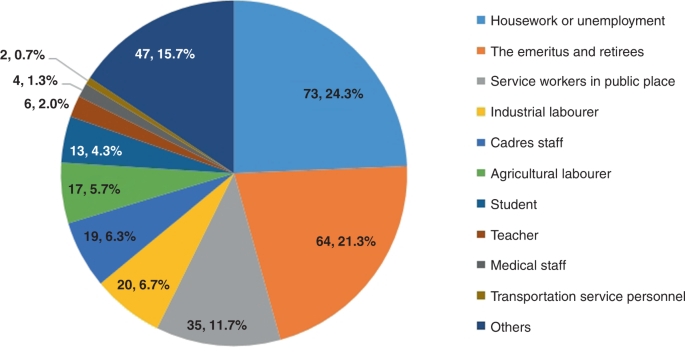Informação para os entusiastas destas vacinas-expresso.
Estudo de 2012 sobre os resultados da imunização com vacinas SARS coronovaírus:
Depois de vacinados contra o SARS, "
all mice exhibited histopathologic changes in lungs two days after challenge including all animals vaccinated (Balb/C and C57BL/6) or given live virus, influenza vaccine, or PBS suggesting infection occurred in all."
E a conclusão a que os autores chegaram foi que "These SARS-CoV vaccines all induced antibody and protection against infection with SARS-CoV.
However,
challenge of mice given any of the vaccines led to occurrence of Th2-type immunopathology suggesting hypersensitivity to SARS-CoV components was induced. Caution in proceeding to application of a SARS-CoV vaccine in humans is indicated.
These SARS-CoV vaccines all induced antibody and protection against infection with SARS-CoV. However, challenge of mice given any of the vaccines led to occurrence of Th2-type immunopathology suggesting hypersensitivity to SARS-CoV components was induced. Caution in proceeding to application of...

pubmed.ncbi.nlm.nih.gov
Artigo sobre o risco de Antibody Dependance Enhancement (ADE) em vírus como os do dengue, ebola ou coronavírus:
In some viruses, if a person harbors a non-neutralizing antibody to the virus, a subsequent infection by the virus can cause that person to elicit a more severe reaction to the virus due to the presence of the non-neutralizing antibody. This is not true for all viruses, only particular ones. This is called Antibody Dependent Enhancement (ADE), and is a common problem with Dengue Virus, Ebola Virus, HIV, RSV, and the family of coronaviruses. In fact,
this problem of ADE is a major reason why many previous vaccine trials for other coronaviruses failed. Major safety concerns were observed in animal models. If ADE occurs in an individual, their response to the virus can be worse than their response if they had never developed an antibody in the first place.
Are you aware of Antibody Dependent Enhancement?

sciencewithdrdoug.com
Estudo da Lancet, de 2019, que mostra quão pouco promissores têm sido os resultados duma vacina anti MERS coronavirus:
No licensed MERS coronavirus vaccine is currently available, and substantial challenges exist to the development of such a vaccine. These include: (1) available animal models (eg, transduced mice, and transgenic mice, rabbits, rhesus macaques, marmosets, alpacas, and camels) might not mimic human disease;
7 (2) an immune correlate of protection has not been defined, and the protective immune response in natural infection is poorly understood, although both humoral and cellular responses are probably necessary for viral clearance;
8 (3) there is a theoretical risk of immune enhancement during MERS coronavirus infection after vaccination, possibly leading to immunopathological pulmonary eosinophilic infiltration;
9 (4) demonstration of efficacy in the field will probably not be possible, necessitating alternative regulatory pathways for licensure; and (5) if MERS shifts from a pattern of sporadic outbreaks to pandemic spread, it is not known whether vaccines based on current MERS coronavirus isolates will offer protection against pandemic strains.
Informação do UK Department of Health and Social Care para os técnicos que vão aplicar a vacina da Pfizer:
- “
The safety and efficacy of COVID-19 mRNA Vaccine BNT162b2in children under 16 years of age have not yet been established.”
- “Immunocompromised persons , including individuals receiving immunosuppressant therapy, may have a diminished immune response to the vaccine:
No data are available about concomitant use of immunosuppressants”
- Interaction with other medicinal products and other forms of interaction:
No interaction studies have been performed.
- Pregnancy:
There are no or limited amount of data from the use of COVID-19 mRNAVaccine BNT162b2.Animal reproductive toxicity studies have not been completed.
- Breast-feeding:
It is unknown whether COVID-19 mRNA Vaccine BNT162b2 is excreted in human milk. A risk to the newborns/infants cannot be excluded.”
https://assets.publishing.service.g.../Information_for_healthcare_professionals.pdf
Dr. Tom Cowan explica em pormenor o que são as vacinas mRNA:
Dr. Cowan breaks down the mechanisms of mRNA viruses, giving context to the ongoing COVID conundrum regarding the "vaccines." NOTE: He uses the word, "vacation" in place of "vaccine" because this video was initially uploaded to YouTube. Dr. Cowan's work is found on his BitChute channel @...

www.bitchute.com
Portanto, o próprio UK Health Department admite que a vacina da Pfizer não foi devidamente testada. Cada um que tire as suas conclusões. Pela minha parte, já decidi há muito que, pelos menos as vacinas mRNA da Pfizer e da Moderna, não as tomo nem morto.

 www.nature.com
www.nature.com









